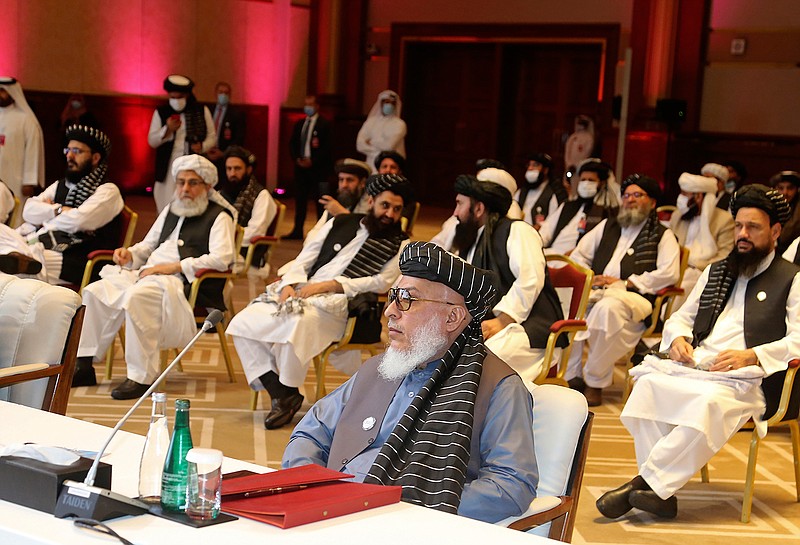ISLAMABAD - Afghan negotiators are to resume talks with the Taliban on Tuesday aimed at finding an end to decades of relentless conflict even as hopes wane and frustration and fear grow over a spike in violence across Afghanistan that has combatants on both sides blaming the other.
Torek Farhadi, a former Afghan government advisor, said the government and the Taliban are "two warring minorities," with the Afghan people caught in between - "one says they represent the republic, the other says we want to end foreign occupation and corruption. But the war is (only) about power."
The stop-and-go talks come amid growing doubt over a U.S.-Taliban peace deal brokered by outgoing President Donald Trump. An accelerated withdrawal of U.S. troops ordered by Trump means just 2,500 American soldiers will still be in Afghanistan when President-elect Joe Biden takes office this month.
Biden has advocated keeping a small intelligence-based presence in Afghanistan, but Taliban leaders have flatly rejected any foreign troops. Officials familiar with the U.S.-Taliban peace deal say there is no wiggle room that would allow even a small number of foreign troops to remain.
The Taliban have grown in strength since their ouster in 2001 and today control or hold sway over half the country. But a consensus has emerged that a military victory is impossible for either side.
When the first round of talks began on Sept. 12 - the first time ever the two warring sides met around a negotiating table - they were warned against squandering the opportunity. Failure means a continuation of more than four decades of war, and yet more death and destruction.
Expectations are low. The change in the U.S. administration is likely to drag out the opening days of the talks as both sides wait to see whether Biden will stick to the deal brokered by Trump.
Both the Afghan government and Taliban have proposed agenda items.
"The initial opportunity is that several items of the agenda are similar and would be easy to make progress on," says Nader Nadery, a member of the government's negotiation team, without giving specifics. Nadery, however, warned that spiraling violence will increase public pressure on government negotiators that could derail talks.
Among some of the contentious issues, perhaps one of the trickiest items is a power-sharing agreement. There is little evidence that the Kabul government will be willing to share power or that the Taliban will be flexible on who would be acceptable in a transitional administration.
The government wants a cease-fire to be on the top of the agenda, while the Taliban want to discuss power-sharing with some commitment to how a post-war Afghanistan might look. Then there is the issue of how to eventually disarm the Taliban and militias loyal to warlords, some aligned with the government, some in opposition.
Taliban spokesman Mohammad Naeem told The Associated Press that the Taliban were ready for a resumption of the negotiations, adding that a cease-fire is one of the agenda items, without elaborating.
The sides must also work out how to preserve the rights of minorities and women and make constitutional amendments. The Taliban demand that any rights be "in keeping with Islamic teachings" - a vague formula that activists fear will be used to restrict freedoms.
Anas Haqqani, a member of the Taliban negotiating team, seemed to indicate in a tweet last month that he had problems with some of the so-called progressive changes in Afghanistan, calling them foreign, Western ideas.
Washington's envoy, Zalmay Khlailzad, was in Pakistan on Monday. "Sadly, there's no shortage of potential spoilers. ... We're not talking about one bad apple; we're talking about a whole orchard of bad apples with incentives to stonewall at best and sabotage at worst," he said.

